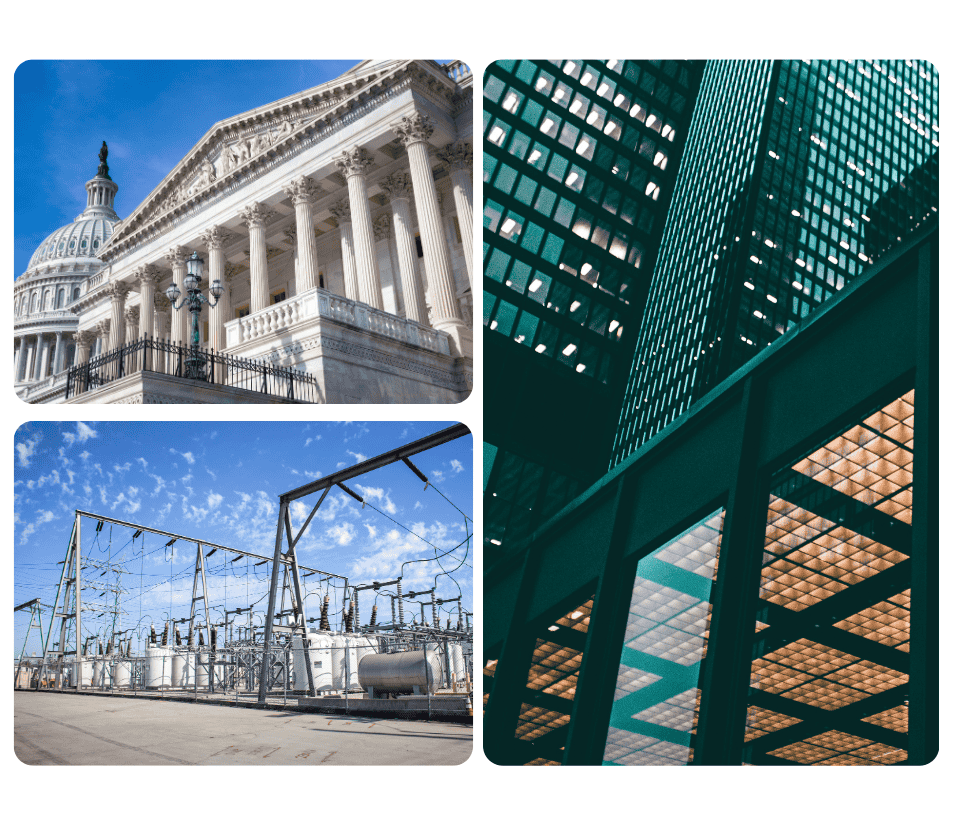
BOMA International's Policy Briefs and Studies
BOMA’s International Advocacy Team works to keep members up to date on pressing policy issues across the industry through policy briefs that cover new areas of policy and old issues that are being updated. Learn more and download reports below.
BOMA International members represent the breadth of commercial real estate, including tenants and clients who operate an incredibly diverse range of businesses in a host of industries. Property professionals may, at times, interact with local, state, or federal law enforcement, including the Federal Bureau of Investigation (FBI) and Immigration and Customs Enforcement (ICE), in a variety of contexts. BOMA is actively evaluating current events and points of interest identified by the BOMA local associations, and we will provide supplemental information in the event it is helpful or necessary.
American cities rely on commercial real estate to drive the local economy. From coffee shops to doctors' offices, biotech labs to office spaces, commercial properties provide the services that people seek and the jobs residents need. Commercial properties are also a pillar of local tax systems, often paying a higher property tax rate to help support public schools, road repair, police protection, and other vital services. legitimate concerns surround the replacement of human judgment, accelerating job loss, institutionalizing bias and blurring the lines that help us recognize the differences between truth and reality. So what does this really mean for commercial real estate?
The PREPARE Act
Natural disasters are increasing in frequency each year, costing the United States $800 billion in the last decade alone. Homes and small businesses have been devastated in recent years by the impacts of severe flooding. Federal Emergency Management Agency (FEMA) statistics show that 40-60% of small businesses never reopen following a disaster, and every $1 spent on mitigation saves taxpayers an average of $6. Find out more about the PREPARE Act and why BOMA believes it can empower small businesses to protect themselves against severe weather events.
Artificial Intelligence (AI) and Commercial Real Estate
As the technology associated with Artificial Intelligence evolves and advances, AI is either hailed as a savior to society’s problems or reviled as a potential disaster of apocalyptic proportions. On one hand, AI is already hard at work making meaningful progress—in fields including commercial real estate. On the other hand, legitimate concerns surround the replacement of human judgment, accelerating job loss, institutionalizing bias and blurring the lines that help us recognize the differences between truth and reality. So what does this really mean for commercial real estate? Read here for more info on BOMA's research and perspective.
Building Electrification: 10 Steps For A Balanced Approach
Encouraging or mandating building electrification has evolved rapidly from a niche concept among a few cities and proponents into a mainstream sustainability goal discussed on national and global scales. BOMA’s policy brief explores 10 steps that commercial real estate agents and developers can take to ensure the built environment is stable and safe while experts work towards a transition.
Study - Building Electrification
Building electrification is the act of replacing fossil fuel powered boilers, domestic hot water heaters, and commercial grade ovens with all electric appliances such as heat pumps, ground-source heat pumps, and induction stoves. BOMA Advocacy partnered with Steve Winter Associates to do an in-depth look at the benefits and also the challenges of pursuing building electrification.
Electrification of Buildings and Decarbonization
Decarbonization continues to be a large focus of public policy. Building electrification plays a massive role in this push for decarbonization, but what do we do with existing buildings and what steps can they take? Read more about BOMA's insights on building electrification and carbon reduction.
Battery Fires
Initially seen as an exciting and convenient amenity, e-scooters and e-bikes are everywhere in downtowns across the United States. With their wide use comes the emergence of a new dangerous issue: fires started from the electric batteries. Read more about the challenges posed by electric bikes and scooters to commercial real estate developers.
Homelessness
Homelessness continues to be a complex and difficult problem in the U.S. While statistics can be unreliable and varying, it is clear that homelessness is a national issue and not limited exclusively to large downtown areas. BOMA International has suggestions and examples of steps that the industry can take to address homelessness in and around our communities.